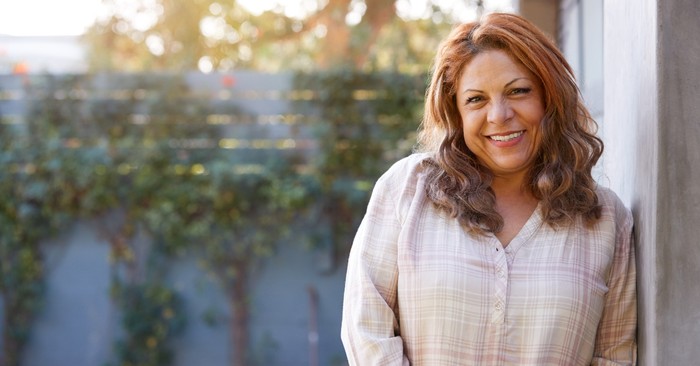
Before my daughter was born four years ago, I had no experience with parenting little girls. I was a boy mom, and thought I always would be. But God had other plans, and I am amazed each day by how different our third child is from her older brothers. Not because we tell her to be different or to act a certain way, but because of the innate uniqueness God created her with. She is female, through and through, and no one has to tell her that. As she grows and her personality expands, I know her contribution to the kingdom of God will be as individual as she is.
God created both male and female to complement each other, not compete with one another. He honored both sexes and declared them good at creation. Each of us was made to spread the news of who he is, to love others, and bring glory to him in our own one-of-a-kind ways. And when we see the ways he made us different as strengths rather than reasons to divide, his church thrives. We become people with a purpose.
The Bible is full of examples of women being honored in counter-cultural ways. But it’s in the stories of Jesus’ interaction with women that give us a special glimpse into our Creator’s heart toward us. These interactions show the many ways women were crucial to his ministry, the beginning of the church, and the spreading of the gospel message.
Here are five ways Jesus honored women:
Photo Credit: © Getty Images/monkeybusinessimages

1. He performs his first miracle at their urging.
When they ran out of wine during the wedding at Cana, Jesus’ mother knows he can resolve the problem. She only says one sentence to Jesus to let him know this: “They have no more wine” (John 2:3). You can almost hear the tone in Jesus’ voice when he says, “Woman, why do you involve me? My hour has not yet come.”
But despite Jesus’ protest, he performs the miracle. He could’ve easily said no and let the guests go without. He could’ve delayed until the chosen hour he speaks of in his conversation with Mary.
Instead, he turns water into wine. He honors his mother’s request in this first miracle, and everyone receives a first glimpse of his power. John notes that his disciples believed in him because of this first demonstration of his glory, which takes place at the urging of a woman who knew his power and ability: his mother.
2. He made it a point to meet with them.
When Jesus meets the Samaritan woman at the well, John states that Jesus “had” to go through Samaria (John 4:4). This wasn’t a chance or accidental meeting, and a look at the historical context of this story reveals that most Jews chose to avoid Samaria altogether. Most took an indirect route to Galilee along the Jordan to avoid going through this place.
Samaritans were half Jews and were considered outcasts. And to add another layer of significance to this interaction, men did not usually meet with women in public settings like this one. They were considered second-class citizens. When the disciples return, John notes they “were surprised to find him talking with a woman” (John 4:27).
But Jesus didn’t care about social etiquette or the opinions of others. He cared about the sickness in this woman’s soul, and he knew he alone could bring her back to life.
After Jesus’ meeting with this woman, she is transformed. She not only believes Jesus is the Messiah, but she goes and tells her entire village. Many others believe because of her testimony, and it’s all because Jesus made it a point to meet with her.
While others didn’t value her, he did. And because he saw her, others were given a chance to see him.
Photo Credit: © Unsplash/Caroline Hernandez

3. He defended them in front of Jewish leaders.
When the Jews bring a woman caught in adultery before Jesus, they want to stone her (John 8:5). They also want to test Jesus and have a reason to accuse him. But instead of falling into their trap, Jesus turns the tables. He asks them not to look at the woman, but to look within themselves. Were they without sin? Not one of them can say yes. And one by one, they leave until it is only Jesus and the woman.
Jesus doesn’t tell her to continue living the same life, but to leave her life of sin. He also tells her a crucial element of her future story: He doesn’t condemn her.
“Then neither do I condemn you,” Jesus declared. “Go now and leave your life of sin.” (John 8:11)
To others, this woman’s life wasn’t worth saving. It was worthless because of her past choices. Jesus chose to look not at her past, but her redeemed future. He didn’t defend her sin, but her destiny that was covered by his grace. He chose to defend what was his, and this woman’s life was never the same.
4. He showed them his humanity.
When Jesus goes to the town where Lazarus lived, he already knows he’s dead. He knows Mary and Martha are mourning, and he knows the future miracle he will perform. Jesus could’ve skipped straight to the part where he shows his power. But instead, he gives Mary and Martha a glimpse of his humanity.
“Jesus wept.” (John 11:35)
He is overcome with emotion because he loves Lazarus, and he loves his sisters too. This is not a show for Jesus, but a man who is grieving. Scripture only contains three instances where Jesus cries, and this meeting with these two women he spent much of his time on earth with is one of them.
Other Jews, including men, witness this show of emotion as well, and they interpret it in different ways. But no matter what others thought, these verses show that Jesus experienced the full range of emotions associated with grief, and Mary and Martha were firsthand witnesses of it.
Photo Credit: © Unsplash/Alexandru Zdrobau

5. He appeared to them first after his resurrection.
Mary Magdalene doesn’t know where her Savior is and sits outside his empty tomb, overcome with grief. When Jesus appears to her, she mistakes him as the gardener. It isn’t until Jesus says one word that she realizes who he is, and her grief turns into joy. He says her name.
“Jesus said to her, ‘Mary.’ She turned toward him and cried out in Aramaic, ‘Rabboni!’ (which means ‘Teacher’).” (John 20:16)
This short interaction between Jesus and Mary becomes the first catalyst in spreading the news of his resurrection. Mary runs to tell the other disciples, and although some are skeptical, they will soon see for themselves the truth of her claims.
There are many other instances of Jesus honoring women during his ministry and his short time on earth after the resurrection. These are just a few of them, and he continued to use women and their gifts after his ascension. During the establishment of the early church, women were instrumental in spreading the gospel message and ensuring its continual thriving.
But perhaps one of the most important ways Jesus honored women was to show that with collaboration, each person in the church is vital. No person is any more important than the other, because each part plays a role in spreading his love. When we work together and recognize each person’s gifts, beautiful things happen. Lives are saved and others are drawn to the person who is making all things new.
Let’s continue to honor one another the way Jesus did. Because when we do, we become the stones of the church he’s building through his Spirit here on earth. We become a structure that’s indestructible because we’re led by the One who uses each member without favoritism.
Photo Credit: © SWN
Originally published Tuesday, 30 March 2021.








